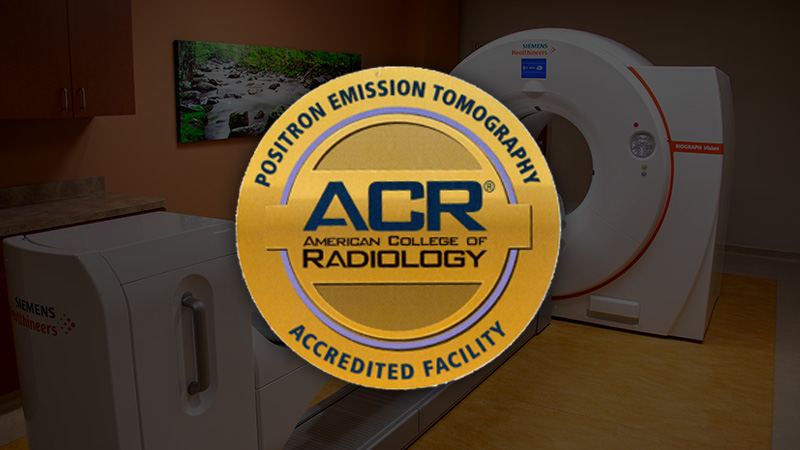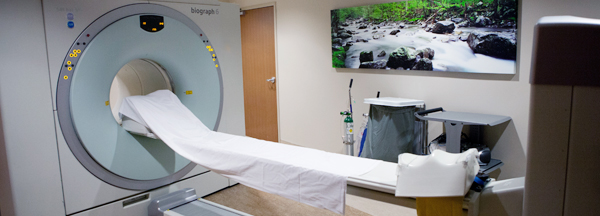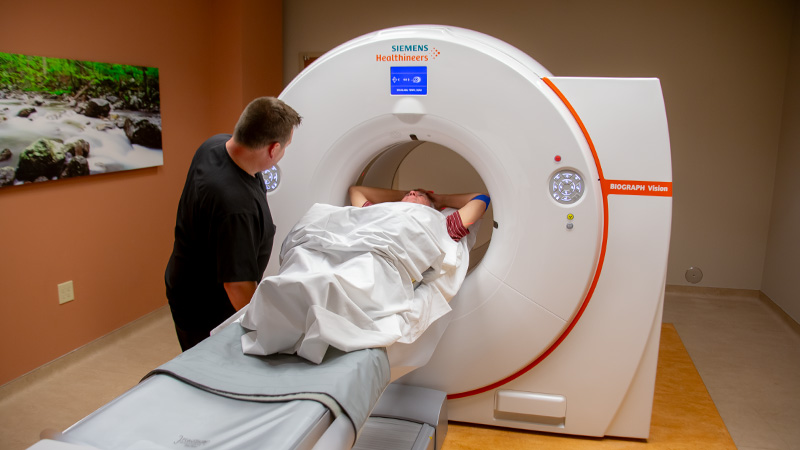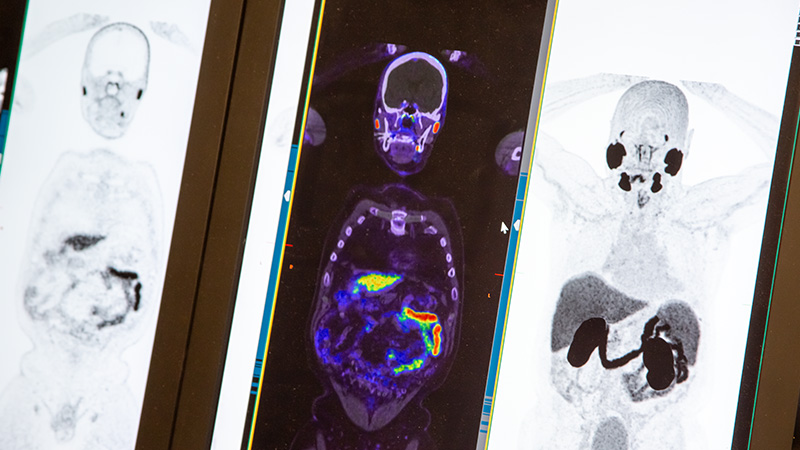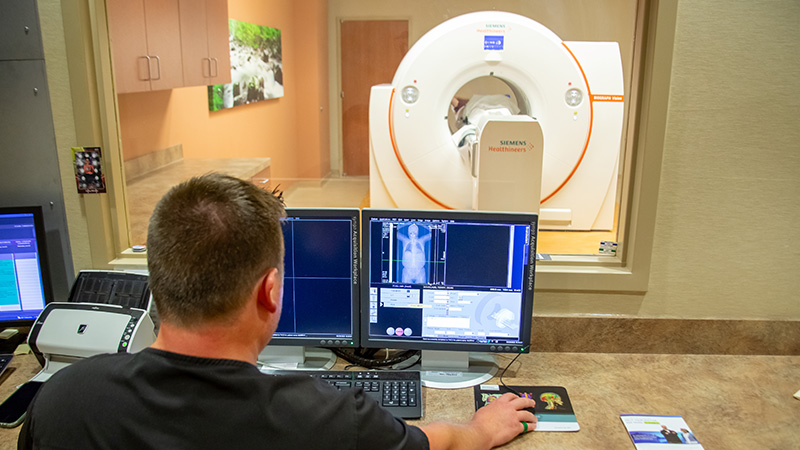Provision Diagnostic Imaging became the first imaging center in East Tennessee to offer the PSMA PET/CT scan to patients. As part of our mission to embrace innovative healthcare solutions, we recognize the PSMA PET/CT scan as a scientific breakthrough in diagnostic technology for prostate cancer treatment. The PSMA PET/CT is a diagnostic tool that can allow for more precise treatment of metastatic prostate cancer by giving physicians better insight into whether a targeted or systemic treatment is more appropriate. It can also allow for early, targeted treatment of localized cancer recurrence.
What is PSMA PET/CT?
PSMA stands for prostate specific membrane antigen, a protein found on the surface of prostate cancer cells. PET is positron emission tomography which is an imaging scan technique that uses radioactive substances known as radiotracers to visualize and measure changes in metabolic processes and diagnose a variety of diseases. The PET image shows how a patient’s cells react to the radiotracer, measuring biochemical function of tissue and organs, such as blood flow, regional chemical composition, and absorption. The CT scan stands for computerized tomography, which combines a series of x-ray images taken from different angles around the body and uses computer processing to create cross-sectional images (slices) of the bones, blood vessels and soft tissues inside your body. The PET/CT scan combines these two technologies together producing a 3-D image to show a patient’s anatomy. The PSMA PET/CT is the most advanced and precise diagnostic tool to specifically detect prostate cancer anywhere in the body.
Learn more about the PSMA, so you can discuss the benefits with your physician:

How Does PSMA PET/CT Work?
PET scans use radiotracers, which are radioactive molecules that attach to cancer cells. The radioactive agent is visible on PET scan images as it “lights up”. Historically, radiotracers would not routinely bind to prostate cancer; and therefore, early developed or very small prostate cancer tumors failed to be visible on the PET scan. However, a new radiotracer, piflufolastat F-18 binds to the PSMA on prostate cancer cells, which makes the PSMA PET/CT the single best method available to precisely see prostate cancer in the body.
What are the Benefits of PSMA PET/CT?
PSMA PET/CT targets the tumor on a molecular level to precisely show disease more accurately and at an earlier stage, which benefits diagnosis, treatment, and outcomes. Conventional imaging: CT, MRI and bone scans are unable to match the performance of PSMA PET/CT to find very small tumors at an earlier stage.
Who is a Candidate for PSMA PET/CT?
A PSMA PET/CT scan is very useful diagnostic tool for several prostate cancer indications:
- For patients diagnosed with intermediate to high-risk prostate cancer, the PSMA PET/CT can help determine if the cancer is still localized or has spread to other parts of the body.
- For patients who have already been treated for localized prostate cancer but have rising PSA levels, the PSMA PET/CT is clinically indicated for use in detecting recurring cancer. This can help the physician determine whether a targeted or systemic therapy is more appropriate.
What to Expect on your PSMA PET/CT Scan Appointment
- Please arrive approximately 15 minutes before your scheduled appointment time to allow for the registration process.
- Please wear warm and comfortable clothing to keep on during the scan.
- No fasting is required prior to the PSMA PET/CT scan.
- Patients should drink 32-ounces of water the morning of the scan.
- After check-in, you will be taken to a private room where the radioactive tracer will be administered as an intravenous injection in your arm.
- You will rest comfortably for 60 minutes while the radioactive tracer is absorbed throughout your body.
- You will empty your bladder prior to the scan.
- You will be taken to the PET imaging machine, where you will lie still on the scanner bed and remain for approximately 20 minutes while the machine scans your body. The PSMA PET/CT scan is completely painless and has no side effects.
- The scans are sent to the nuclear medicine physician to evaluate. That report and the PET images are then reviewed by your physician, who will contact you with the results within 1-2 business days.
- No strenuous exercise is recommended for the day of your scan, such as working out, jogging, etc.
- You can expect to be at the imaging center for approximately 2 hours from start to finish.
